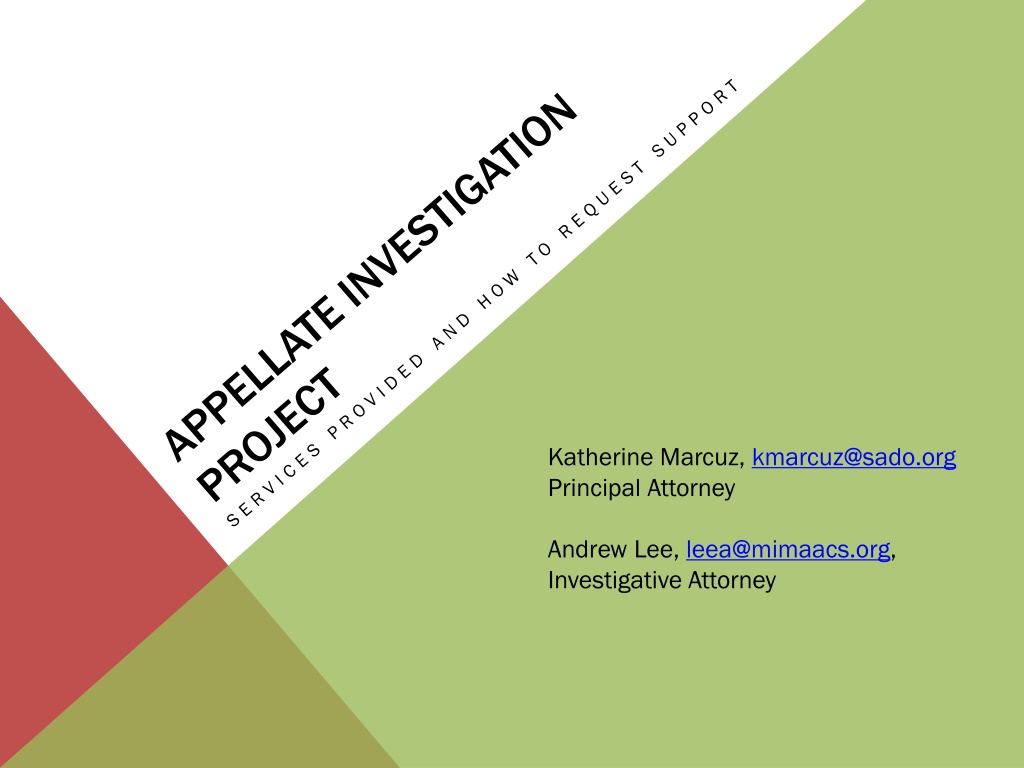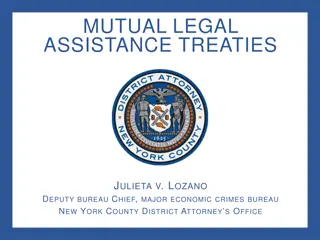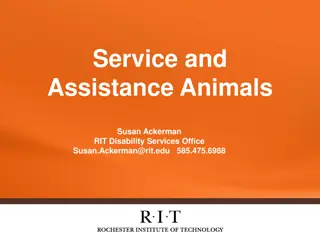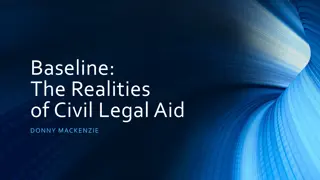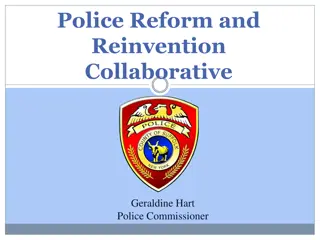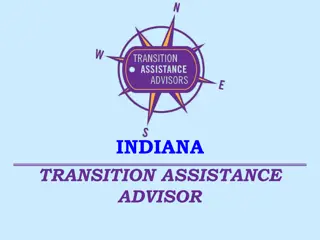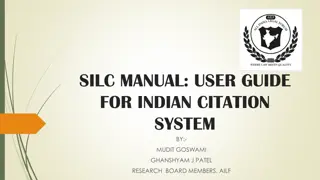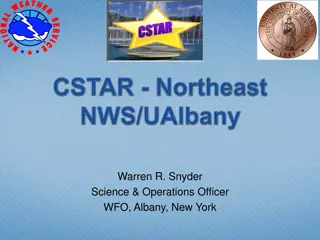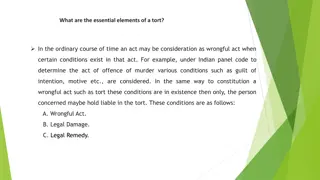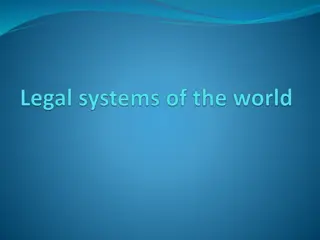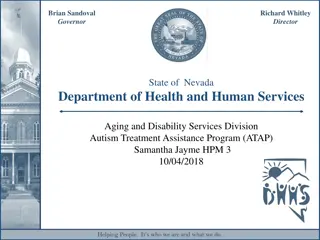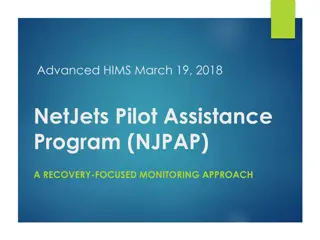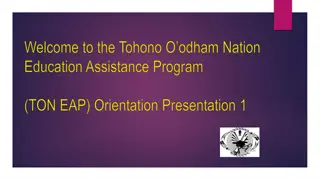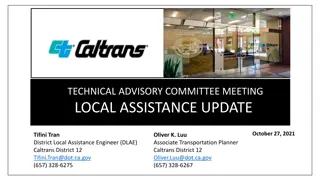Collaborative Legal Assistance Program Overview
The Collaborative Legal Assistance Program (AIP) is a federally funded collaboration between SADO and MAACS aimed at providing greater access to investigators, training on spotting and litigating extra-record issues, and research and writing support in cases needing expert assistance. The program is supported by Byrne JAG State FY 2016 grant and administered by the U.S. Department of Justice and Michigan State Police. The program also involves investigating suspected perpetrators, identifying motives, retrieving records, interviewing witnesses, and assisting with DNA evidence testing.
Download Presentation

Please find below an Image/Link to download the presentation.
The content on the website is provided AS IS for your information and personal use only. It may not be sold, licensed, or shared on other websites without obtaining consent from the author. Download presentation by click this link. If you encounter any issues during the download, it is possible that the publisher has removed the file from their server.
E N D
Presentation Transcript
Katherine Marcuz, kmarcuz@sado.org Principal Attorney Andrew Lee, leea@mimaacs.org, Investigative Attorney
WHAT IS THE AIP? The AIP is a SADO/MAACS collaboration that is federally funded* The AIP is a SADO/MAACS collaboration that is federally funded* through the Byrne Justice Assistance Grant through the Byrne Justice Assistance Grant GOALS: GOALS: Provide MAACS attorneys with greater access to investigators Provide MAACS attorneys with greater access to investigators Provide training on spotting and litigating extra Provide training on spotting and litigating extra- -record issues Provide research and writing support in cases where expert Provide research and writing support in cases where expert assistance is needed assistance is needed record issues *This project is supported by Byrne JAG State FY 2016 grant # 2015-MU-BX- 0964,0, awarded by the U.S. Department of Justice (DOJ), and administered by the Michigan State Police (MSP). Points of view or opinions contained within this document do not necessarily represent the official position or policies of the MSP or DOJ.
CASE STUDY #1 *Facts of case deleted for confidentiality reasons* *Facts of case deleted for confidentiality reasons*
INVESTIGATE THE SUSPECTED ACTUAL PERPETRATOR - - Record Record retrieval retrieval Interviewing other individuals who may have information Interviewing other individuals who may have information about this about this person s involvement person s involvement Identifying Identifying motive motive Identifying Identifying other potential evidence that could be tested for other potential evidence that could be tested for DNA and assisting in drafting such a motion DNA and assisting in drafting such a motion - -
Locate and interview other witnesses Locate and interview other witnesses Provide support surrounding forensic science issues Provide support surrounding forensic science issues Research DNA issues relevant to this particular case Identify a defense expert if necessary Help counsel prepare motion for funds Help counsel prepare examination of prosecutor s expert Second chair evidentiary hearing Second chair evidentiary hearing
CASE STUDY #2 Client is convicted of felony firearm 2 Client is convicted of felony firearm 2nd warrantless raid of house where drug sales are taking place warrantless raid of house where drug sales are taking place nd,CCW, and FIP, after ,CCW, and FIP, after Client maintains that officers did not see him possess and Client maintains that officers did not see him possess and discard gun. Rather, gun was discovered under couch discard gun. Rather, gun was discovered under couch cushion during search of home. cushion during search of home. Trial attorney did not investigate or interview other individuals Trial attorney did not investigate or interview other individuals that were present and who could corroborate client s version that were present and who could corroborate client s version of events of events
Locate and interview missing witness Locate and interview missing witness Identifying other potential witnesses Identifying other potential witnesses Communicate with trial counsel Communicate with trial counsel Assist in obtaining discovery materials Assist in obtaining discovery materials Develop other potential avenues for investigation Develop other potential avenues for investigation Obtain other necessary records and information Obtain other necessary records and information Assist in preparing for the evidentiary hearing Assist in preparing for the evidentiary hearing Second chair hearing Second chair hearing
HAVE A CLEAR SENSE OF WHAT YOU NEED TO KNOW AND WHY IT MATTERS CONDUCT A PRELIMINARY INVESTIGATION CONDUCT A PRELIMINARY INVESTIGATION CONSIDER THE POTENTIAL LEGAL ISSUE CONSIDER THE POTENTIAL LEGAL ISSUE IDENTIFY SPECIFIC TASKS IDENTIFY SPECIFIC TASKS
CONSIDER THE POTENTIAL LEGAL ISSUE Client is entitled to plea withdrawal where his plea was not voluntary, knowing, or intelligent because he has serious intellectual limitations and did not understand the consequences of the plea or rights that he was waiving. Trial counsel was ineffective for failing to investigate and present the testimony of [Name], a crucial defense witness. Client was deprived of his state and federal rights to the effective assistance of counsel when his trial attorney failed to investigate the prosecution s causation theory, when investigation would have provided a substantial defense to the charges. Trial counsel was ineffective for failing to investigate and present impeachment evidence where its materiality would render a different result probable on a retrial of this case.
IDENTIFY SPECIFIC TASKS Client is entitled to plea withdrawal where his plea was not voluntary, knowing, or intelligent because he has serious intellectual limitations and did not understand the consequences of the plea or rights that he was waiving. Help obtaining critical records MDOC, jail, school, medical, SSI, CPS . . . Identifying and interviewing potential witnesses Lay witnesses Expert witnesses Seeking an independent competency evaluation Trial counsel (companion IAC issue)
YOU SUBMITTED A REQUEST . . . . WHAT HAPPENS NEXT? 1. 1. We review the request We review the request and attached materials within 3 business days within 3 business days and attached materials, then follow up with a phone call , then follow up with a phone call 2. 2. If approved If approved approval is limited to # of hours of investigator time approval is limited to # of hours of investigator time 3. 3. We will keep you posted on progress of investigation We will keep you posted on progress of investigation 4. 4. Ask for other help if you need it Ask for other help if you need it Reviewing/editing pleadings Strategy/preparation for an evidentiary hearing 5. 5. Final memo Final memo
AIP TRAINING SERIES : ISSUES IN FORENSIC SCIENCE Challenging Bad Science on Appeal: Litigating Ineffective Assistance of Counsel for Challenging Bad Science on Appeal: Litigating Ineffective Assistance of Counsel for Failure to Raise a Failure to Raise a Daubert Daubert Motion Motion Friday Friday February 26, February 26, 2016, 3pm to 5pm 2016, 3pm to 5pm SADO Detroit SADO Detroit Presented by: Imran Syed, Michigan Innocence Clinic Presented by: Imran Syed, Michigan Innocence Clinic
QUESTIONS? Andrew Lee, Investigative Attorney, LeeA@mimaacs.org Katherine Marcuz, Principal Attorney, kmarcuz@sado.org
